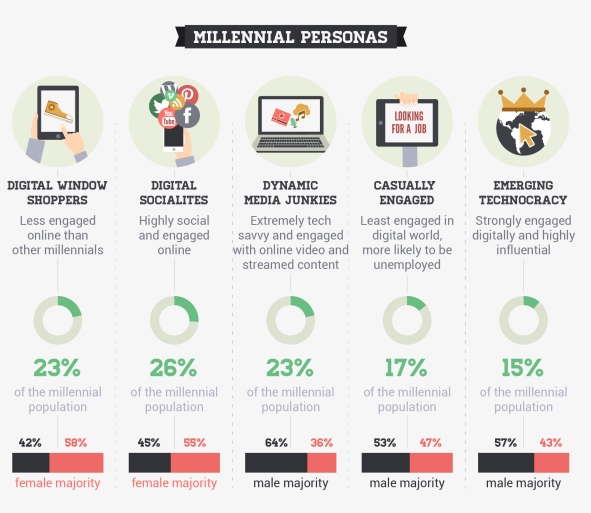Millennials (aged 20-35) are often called the “C” generation, “C” standing for “connected.” They are the first generation to be born in today’s digital environment where they’ve had 24/7 access to streams of information and constant connection via technology. Along with this shift in demographics comes changes in experiences, attitudes, and expectations, all of which have implications for health care providers.

A 2012 study from ZocDoc and Harris Interactive found that 51 percent of millennials surveyed visit a physician less than once per year. They believe seeing a doctor is too much of a “pain.” According to a Salesforce’s State of the Connected Patient report, millennials are generally frustrated with filling out repetitive forms, and the time wasted waiting in a doctor’s waiting room. Seeing a doctor is an unwieldy, expensive and unwelcome errand.
Understand that millennials are heavily invested in technology, and then get your own technology in order.
In contrast to authority-driven customer communication modes, nearly half of all millennials want their healthcare experience to feel more accessible and engaging. While millennials have different and sometimes non-existent relationships with their doctors, they believe digital health has the potential to change that.
Digital healthcare that gives a greater sense of control is of great value to millennials. Commonly cited examples of digital health include health tracking devices like Fitbit, self-diagnosing websites like WebMD, and apps that make it easier to make appointments, order medication, store individual health data, and recommend preventative health measures.
Millennials Turn Online For Health Information
Millennials are driven by information. It is how they make buying decisions and decisions about their own health. Unlike previous generations, millennials don’t rely on a strong relationship with their doctor. They are mistrustful of authority (in a study conducted by Greyhealth Group and Kantar Health, only 58 percent of millennials said they trust their doctors), preferring to google their symptoms and self-diagnose prior to scheduling a doctor’s appointment
Compared to any other generation, they default to — and prefer — information corroborated by multiple channels and influencers. In fact, before even meeting with a healthcare professional, 54% of Millennials have consulted as many as seven information sources for purposes of self-diagnosis from blogs to medical message boards, ratings and reviews and more.
Become The Trusted Online Source
Making a practice accessible online is essential to attract millennial patients.
Take a look at how you deliver information to your patients, as well as how you offer appointment scheduling. Millennials want health information to be readily available and easily understandable.
Review your website. Weed out any industry jargon and hard-to-digest information. Make forms available on your site so patients can fill them out ahead of time online.
Embrace social media and content marketing. Create and share high-quality content that provides engaging, important information about self-care.
While millennials are glued to their smartphones, few actually use the device to make a call – so use more email and automated text messaging (a 2014 Gallup poll shows that 68% of people ages 18-29 utilize text messaging) to communicate. with them.
Embracing The Future of Healthcare
Millennials are the first of a technologically-savvy generation of health seekers – closely followed by Generation Z (born between 1995 and 2010). Embracing the future of healthcare means embracing communication channels that reflect millennials’ wants and expectations. Regardless of specialty, ensuring your practice offers the accommodations younger patients seek out should become a higher priority in 2019.
Further Reading

One thought on “How to Care for the Millennial Patient”